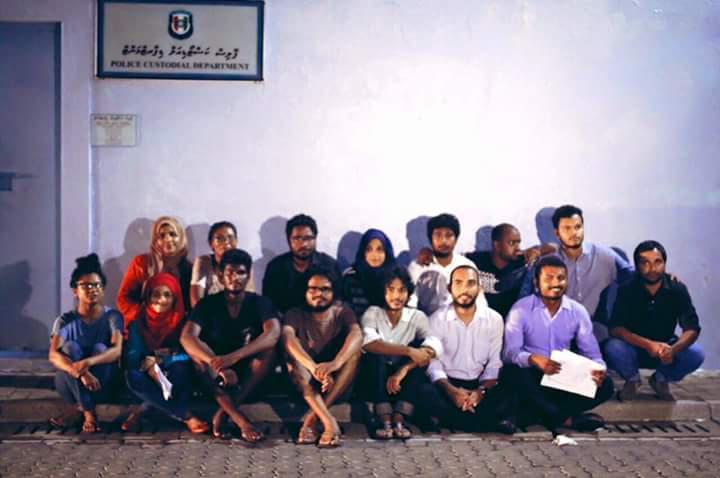Journalists will not be charged over president’s office protest
Ismail Ali, the police spokesman, said: “The cases have not been sent for prosecution, and all of the individuals who were arrested have been summoned to the police station and issued an official warning, advising them to comply with laws and regulations.”

09 May 2016, 09:00
The police have declined to press charges against 17 journalists arrested from a peaceful sit-in protest at the president’s office on April 3.
A police spokesman said: “The cases have not been sent for prosecution, and all of the individuals who were arrested have been summoned to the police station and issued an official warning, advising them to comply with laws and regulations.”
All 17 journalists and a bystander, who was also arrested from the protest, were summoned to the police headquarters Sunday and advised to exercise their right to free speech and assembly within the limits of the law.
The 17 were held for some 12 hours on charges of resisting or obstructing law enforcement officers.
Become a member
Get full access to our archive and personalise your experience.
Already a member?
Discussion
No comments yet. Be the first to share your thoughts!
No comments yet. Be the first to join the conversation!
Join the Conversation
Sign in to share your thoughts under an alias and take part in the discussion. Independent journalism thrives on open, respectful debate — your voice matters.




